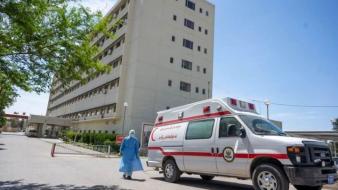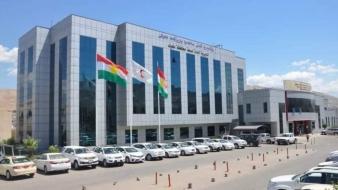British scientists develop an artificial intelligence tool that can accurately identify cancer
GAV
British doctors, scientists and researchers have developed an artificial intelligence model that can accurately identify cancer, in a development that could speed up diagnosis and treatment of the disease.
Designed by experts at the NHS Royal Marsden Foundation Trust, the Institute of Cancer Research London and Imperial College London, the new AI tool can determine whether abnormal tumors found in a CT scan are cancerous or not.
Cancer is a leading cause of death worldwide; According to the World Health Organization, it is responsible for around 10 million deaths annually, or approximately 1 in 6 deaths. However, in many cases, this disease can be cured if detected early and treated quickly.
According to the study, the results of which were published in The Lancet's journal eBioMedicine, the algorithm works more efficiently and effectively than current diagnostic methods.
early diagnosis
Dr Benjamin Hunter, Registrar of Clinical Oncology at the Royal Marsden, said: "We hope that in the future this tool will improve early diagnosis of cancer and the development of more effective treatment by highlighting patients at highest risk and putting them on a fast track to early medical intervention."
The team used CT scans of nearly 500 patients with large lung nodules to develop an AI algorithm using radiology. This technology can extract vital information from medical images that are not easily detected by the human eye.
The AI model was then tested to see if it could accurately identify cancerous nodules.
The study used a measure called the area under the curve to see how well the model predicted cancer. A 1 on the scale indicates that it is a perfect model, while a 0.5 would be expected if the model was guessing at random.
The results showed that the AI model could determine the cancer risk for each node using an AUC of 0.87. The new technology also showed better performance on the Brock test, the test currently used in clinical research, which scored 0.67.
"Based on these initial results, our model appears to accurately identify precancerous large lung nodules," Hunter said. "In the next step, we plan to test the technology on patients with large lung nodules in the clinic to see if it can accurately predict lung cancer risk."
Make faster decisions
The AI model could also help doctors make faster decisions about patients with abnormal mass growth, which is currently considered to be of moderate risk.
The team stressed that the study, called Libra, which is supported by cancer charity The Royal Marsden Foundation, the National Institute for Health and Care Research and the UK's RM Partners and Cancer Research Alliance, is still in its early stages. They emphasized that more testing would be needed before the model could be integrated into healthcare systems.
But they said the potential benefits of this new tool are clear. The researchers hope that the AI tool can eventually speed up the detection of cancer by helping to speed up the treatment of patients, and by simplifying CT scan analysis.
"Through this work, we hope to expand the current horizons of rapid disease detection using innovative technologies such as artificial intelligence," said Dr. Richard Lee, lead researcher of the Libra study.












